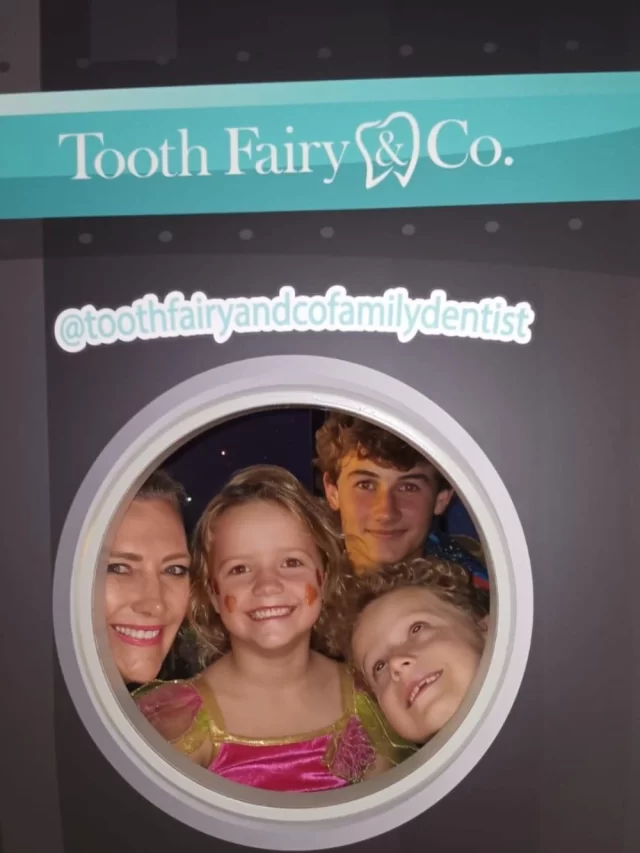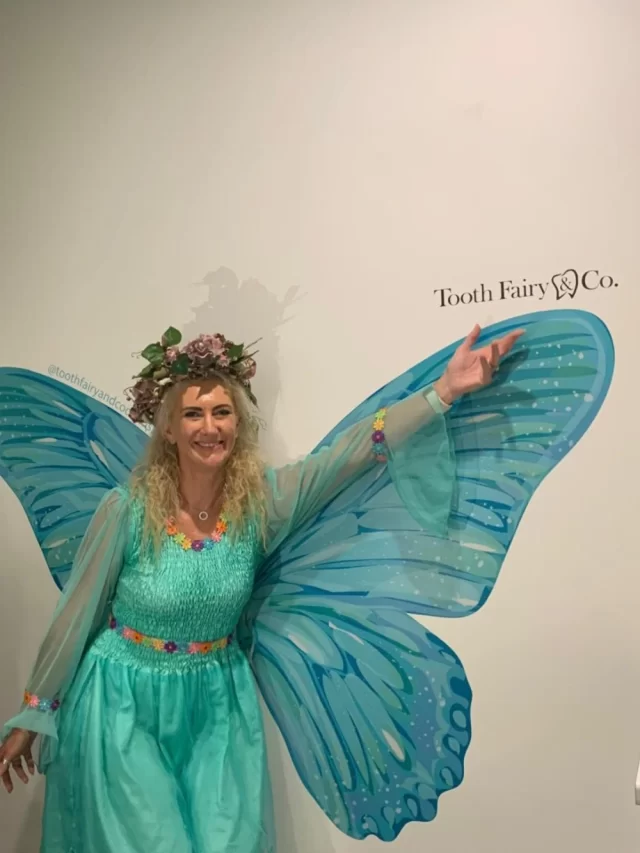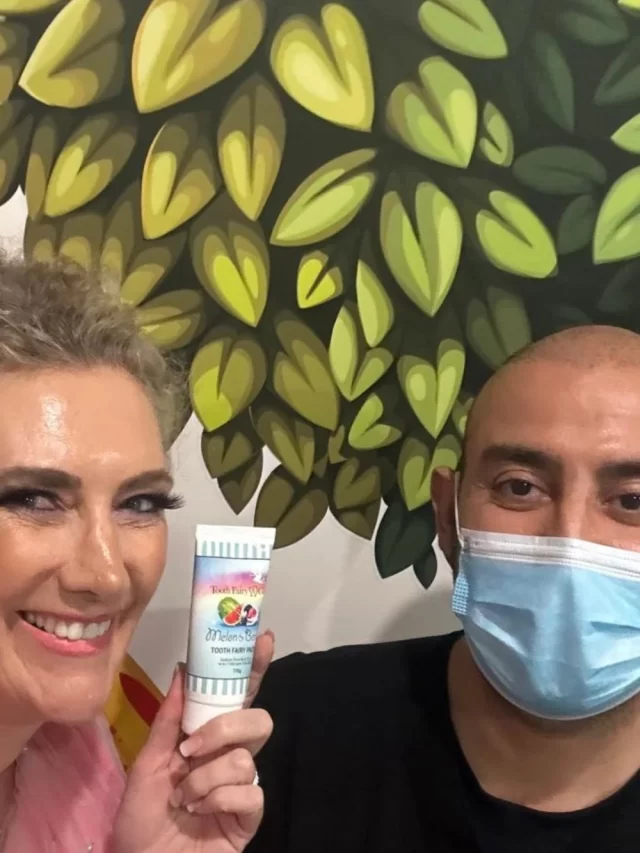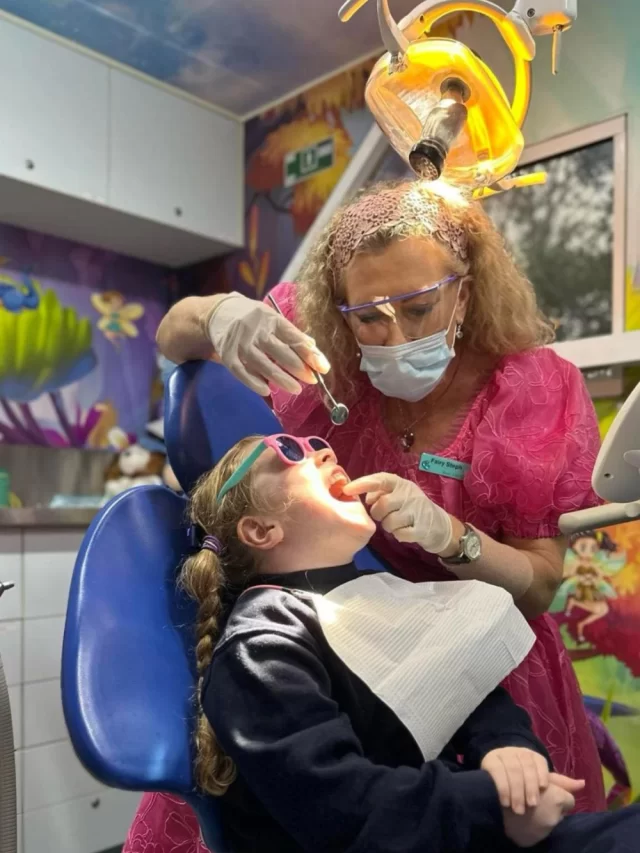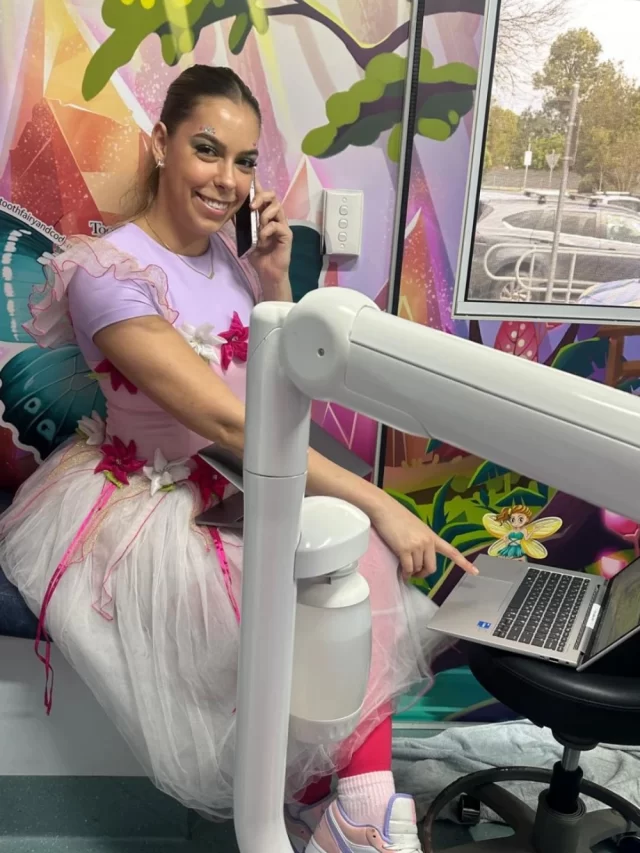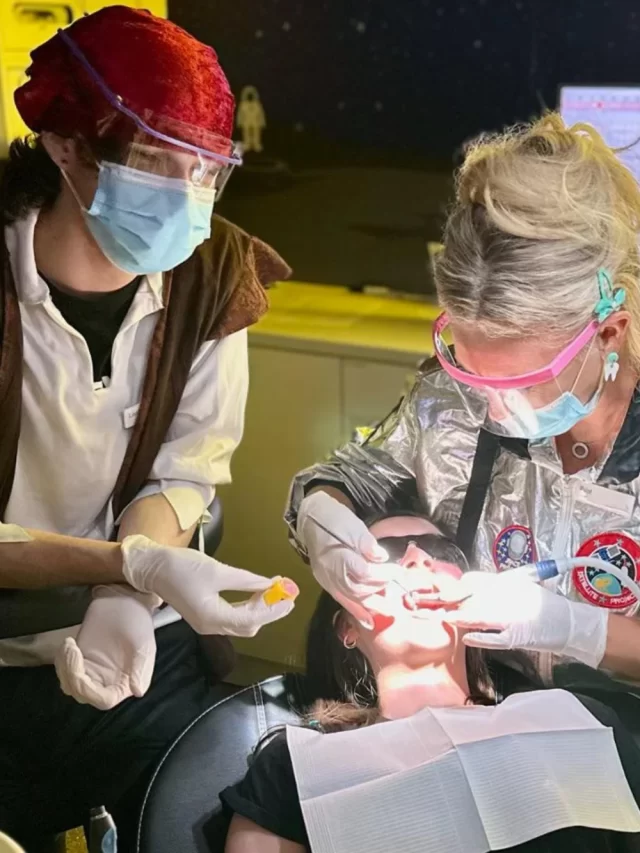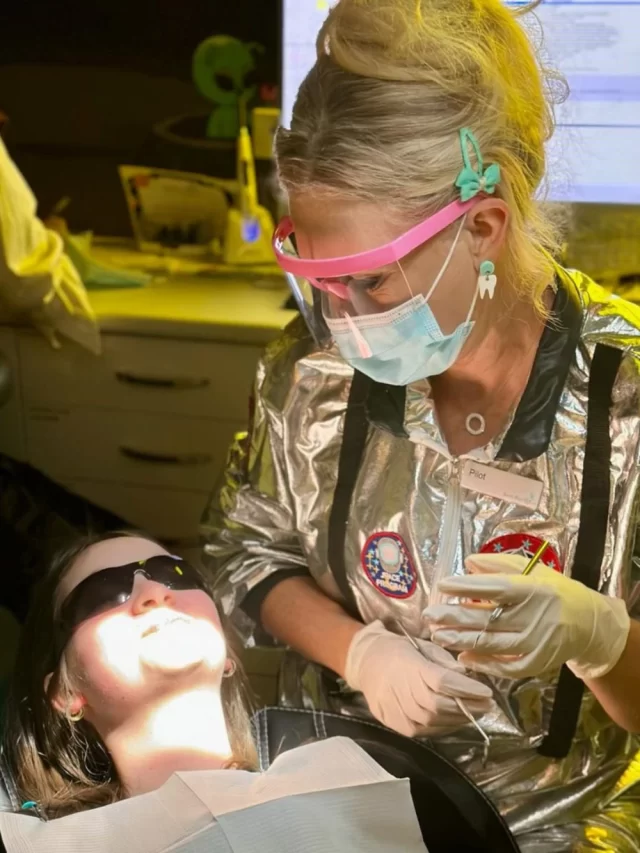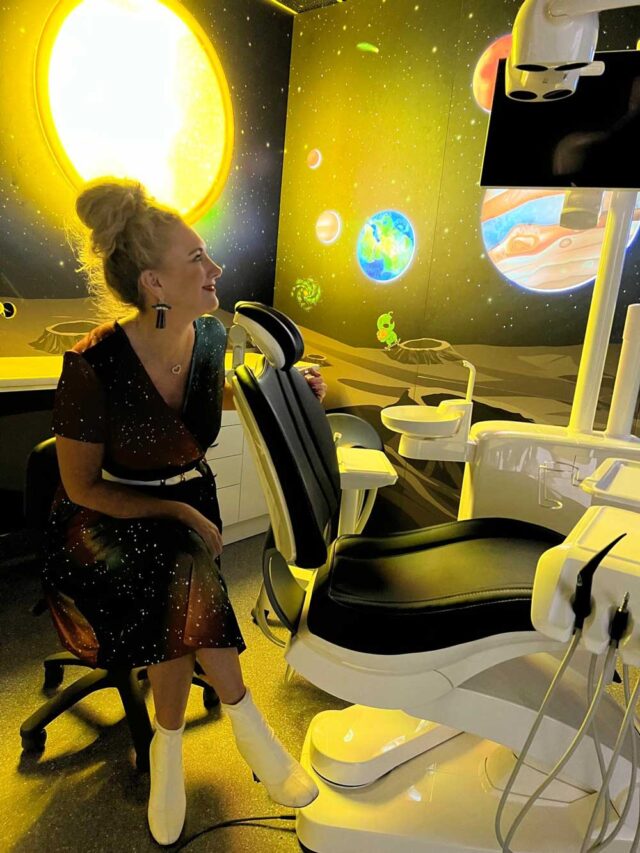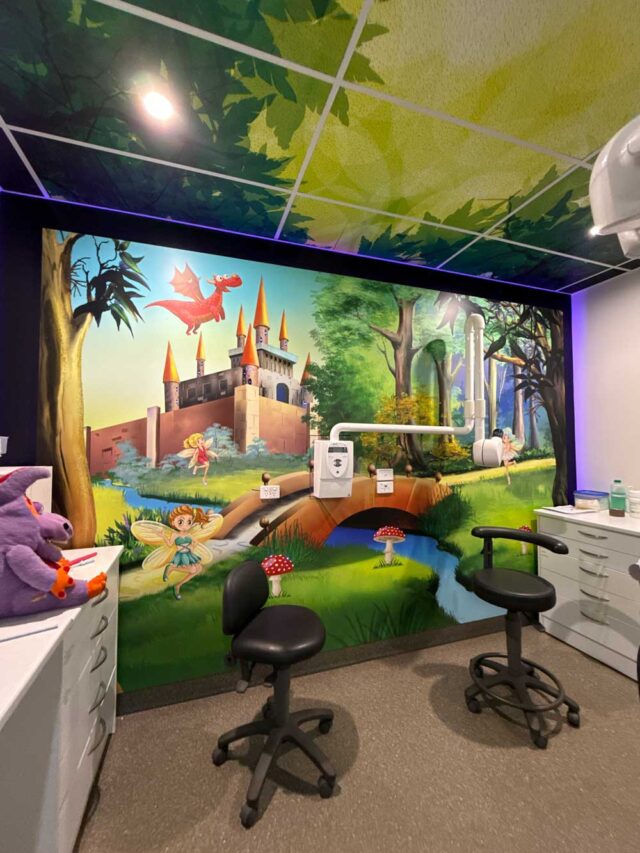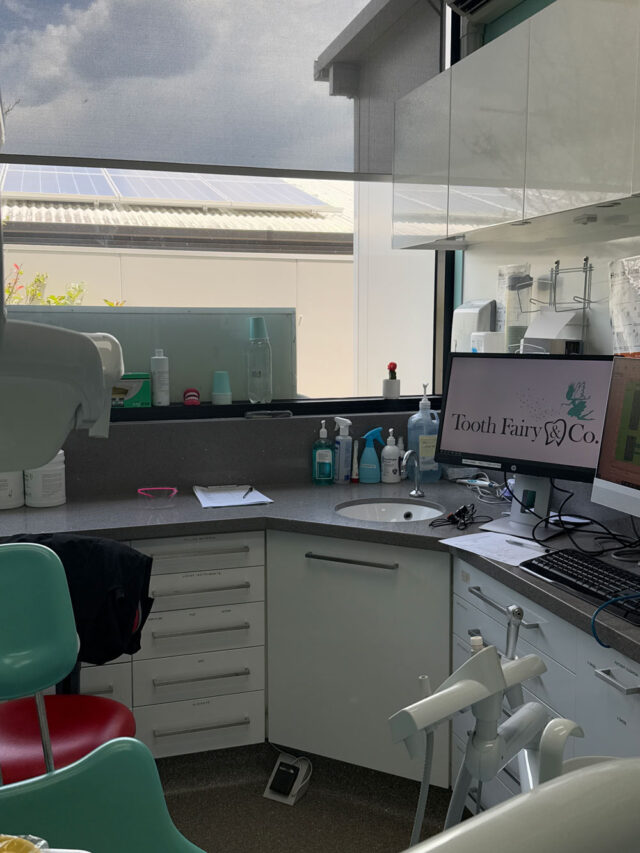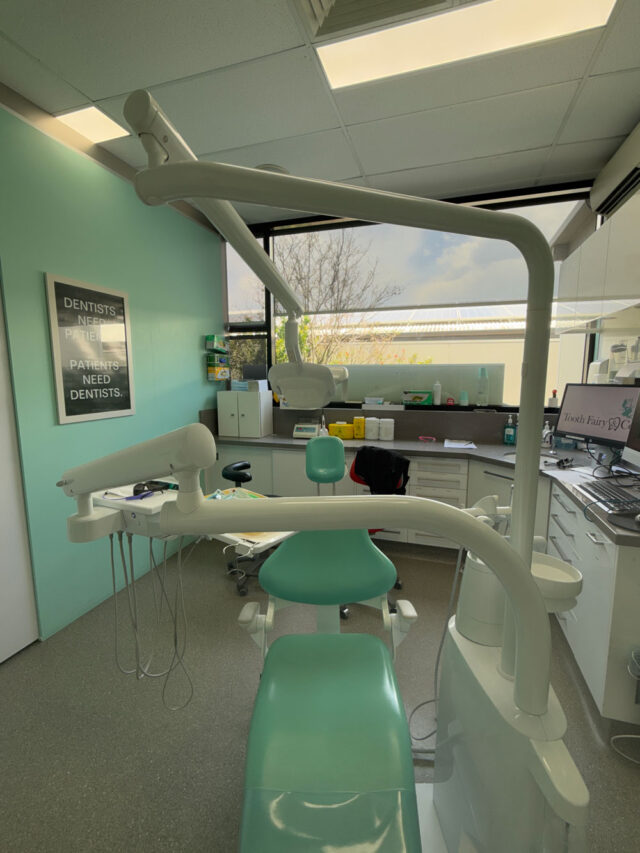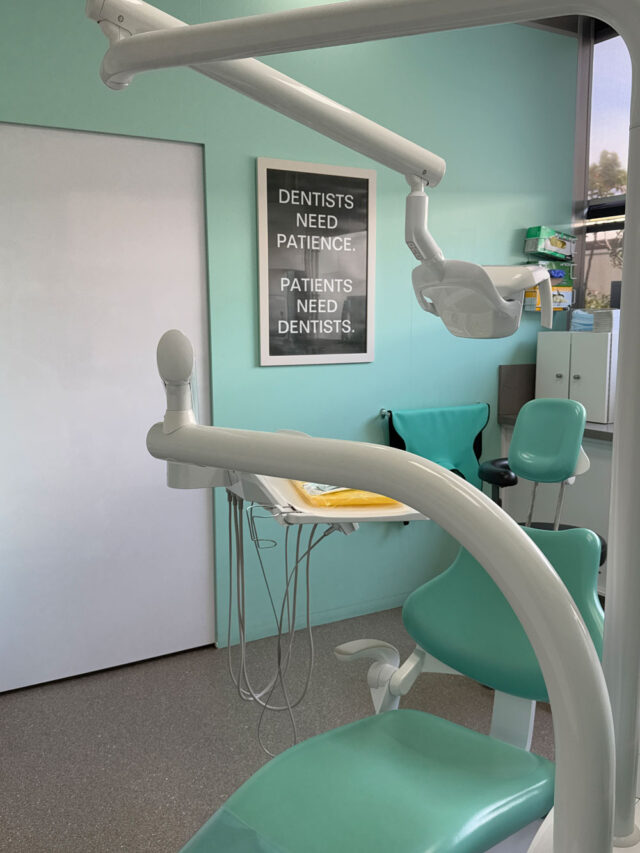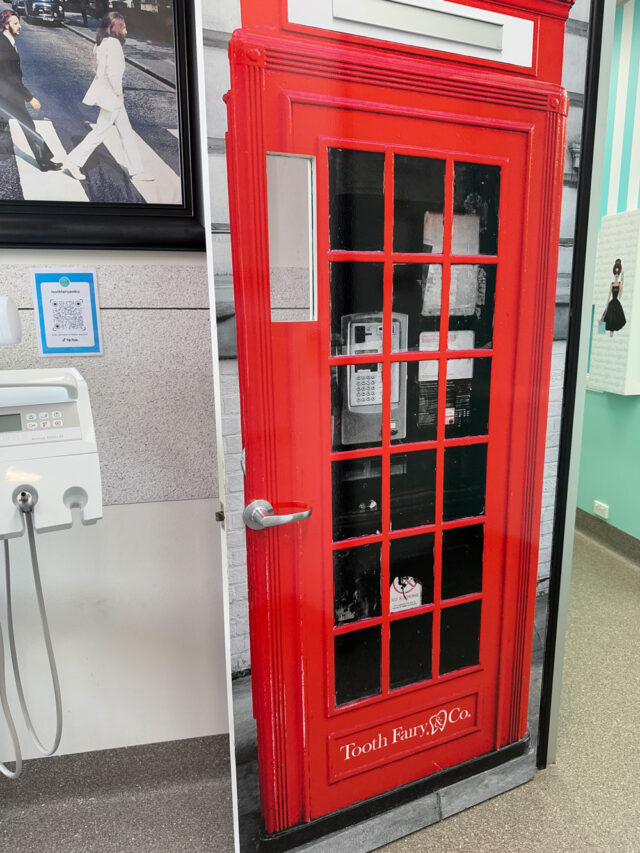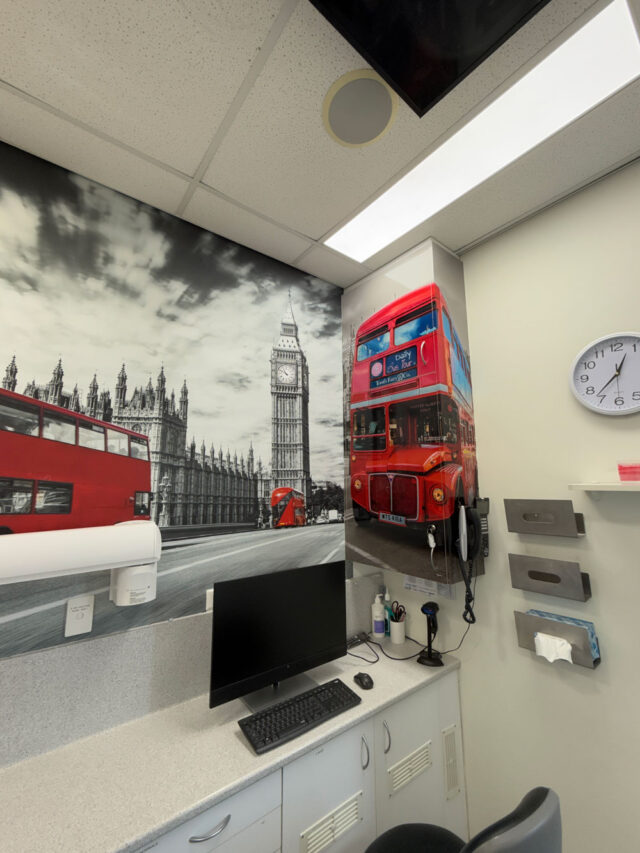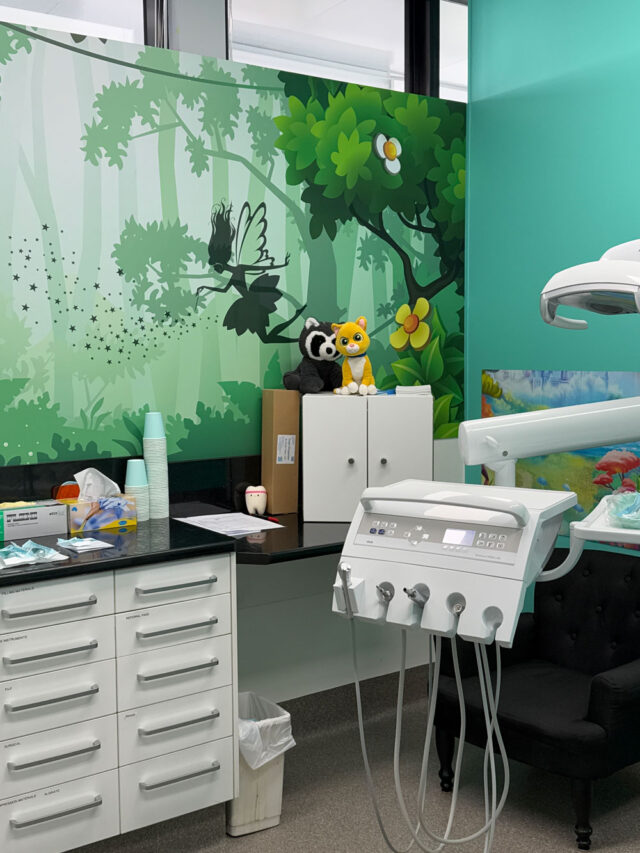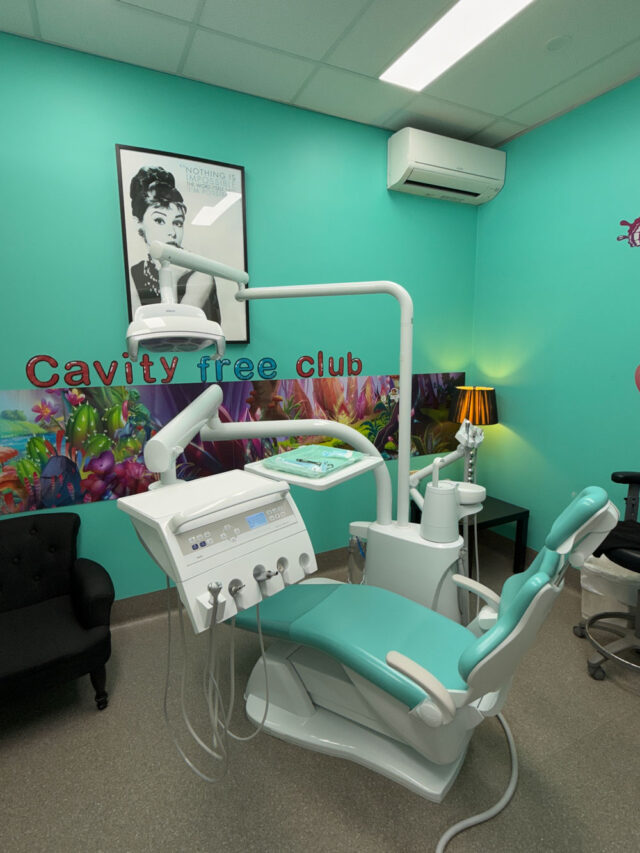Dental Services
Gentle Care. Happy Visits. Healthy Smiles.

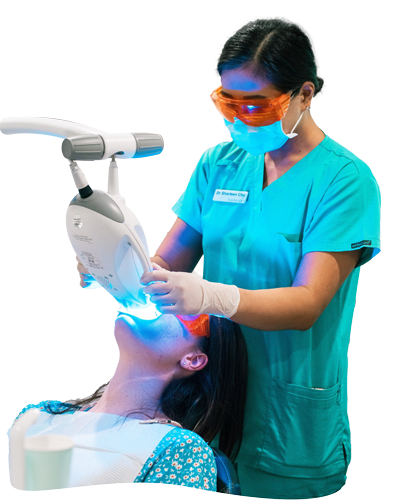
General Dentistry
From tiny teeth to grown-up smiles, we help keep your whole family’s teeth clean, strong, and healthy with regular check-ups, gentle cleans, and simple fixes like fillings.
State of the art heated massage chair by request, themed rooms for anxious patients, dimmable lighting, scented candles in rooms, soft music, ceiling mounted smart TVs all delivered by your caring dental team.
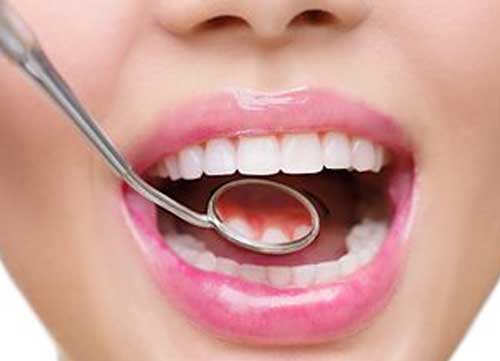
Check and Cleans
One of our dentists or tooth fairies will take a good look at the key areas in your mouth, especially your teeth and gums. To make sure you remain in tip top shape, and so we can screen for early signs of tooth and gum disease, sometimes we’ll require X-rays for closer looks. Then, we’ll descale and polish your teeth, and apply a fluoride treatment for extra protection against tooth decay. Your mouth will feel so fresh and clean after a session with our team.
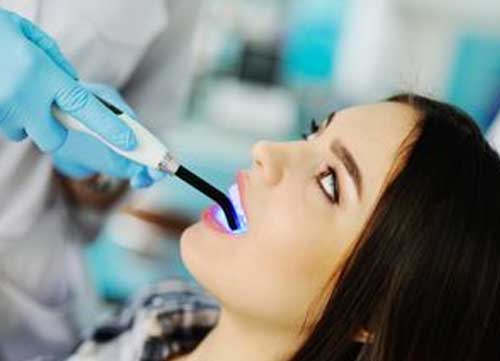
Fillings
White composite fillings look natural and can be colour matched to the surrounding teeth.
Tooth Fairy & Co. no longer use amalgam/silver fillings at our dental practice.

Crowns

Bridges
A bridge consists of two crowns placed on the teeth on either side of a gap which is
created by the loss of a tooth with a pontic (false tooth) attached and supported
between the crowns. This is just one option for tooth replacement.

X – Rays

Mouth Guards Custom Fitted

Dentures
We all deserve a confident, healthy smile and the ability to make positive first impressions. Look and feel your best!
Partial Dentures
- If you are only missing a few teeth, partial dentures are an excellent option to restore your dental function and fix your gappy smile.
Complete Dentures
- Complete dentures are made if all the teeth have been removed. They restore function and are custom made with your input to achieve the best natural look, giving the wearer confidence.

Wisdom Teeth Removal

Gum Disease

Sleep Apnoea
Not all things that take your breath away are good. We can assess your suitability for
a mandibular advancement splint so that you can get a better, more healthful sleep.
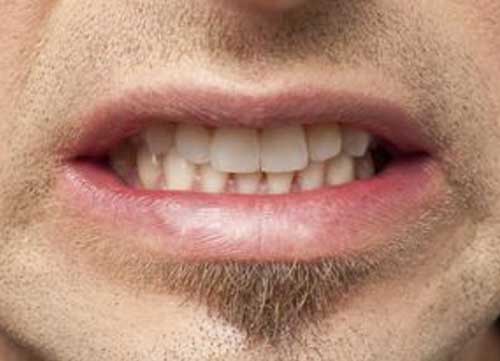
Grinding and Clenching
Grinding and clenching can lead to excessive use of the teeth and jaw muscles. As such, it’s not uncommon to start to see signs of:
- Broken, flat or worn down teeth
- Jaw pain and joint disorder, such as TMD/TMJD
- Frequent headaches
- Broken fillings and crowns
Treatment options for grinding and clenching include wearing an oral splint appliance, medications to relax your muscles, relaxation techniques or even cognitive behavioural therapy.

Root Canal
Sometimes it’s best to get to the root of your problem. With an infected tooth, preservation may require the removal of the nerve inside your tooth.
Root canal treatment is usually completed over three visits, and once complete we strongly recommend placing a crown over the tooth to strengthen and protect it.

Dental Implants
Dental Implants are a another way to replace a missing tooth. Unlike partial dentures or a bridge, a dental implant consists of a titanium screw permanently fixed in the jawbone with a crown attached to the top of it, and has ultimate stability and a more natural feel.
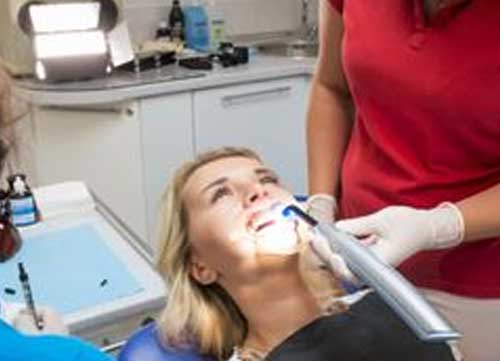
Amalgam Removal
Whether you are removing amalgam fillings because you’re worried about mercury-
based fillings, or because you don’t like the way they look, we have strict guidelines and use the utmost care to ensure minimal potential mercury exposure.
Children's Dentistry

CDBS
Parents are encouraged to make dental appointments for their children before the school holidays end. Some children may even be able to benefit from their child dental benefits schedule (CDBS), which provides $1132 every two years towards children’s dental care for eligible families.
Unsure if you are eligible? Enquire today!
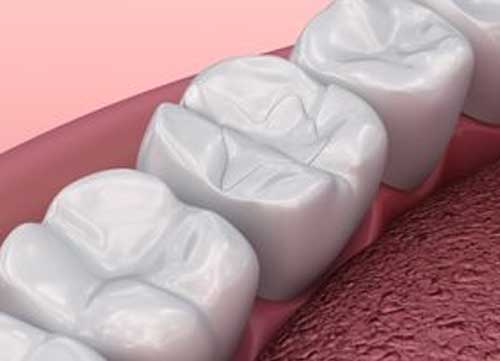
Fissure Sealants
Food and bacteria can become stuck in the fissures (pits / grooves) of your teeth, particularly in the back molars. Children’s molar teeth are very vulnerable to decay as the pits and fissures can be deep, making it more difficult to clean. Decay can then set in and if left untreated can lead to cavities. To prevent plaque and tartar build-up and decay developing, fissure sealants are often applied.
Applying fissure sealants is a pain-free procedure, as there are no drilling or invasive processes involved. It is a purely preventive measure and only takes approximately five minutes per tooth.
Fissure sealant is applied to fill the deep grooves and after only a few minutes sets hard, creating a protective barrier between the tooth enamel and plaque. The sealant material is tooth coloured, and also contains fluoride for added tooth protection.
The best time to apply fissure sealant is immediately following the emergence of your child’s first permanent molars, at around age 6. We then advise fissure sealant also be applied to the second permanent adult premolars when they come through, which usually occurs between the ages of 11-13.
Anxious Patients
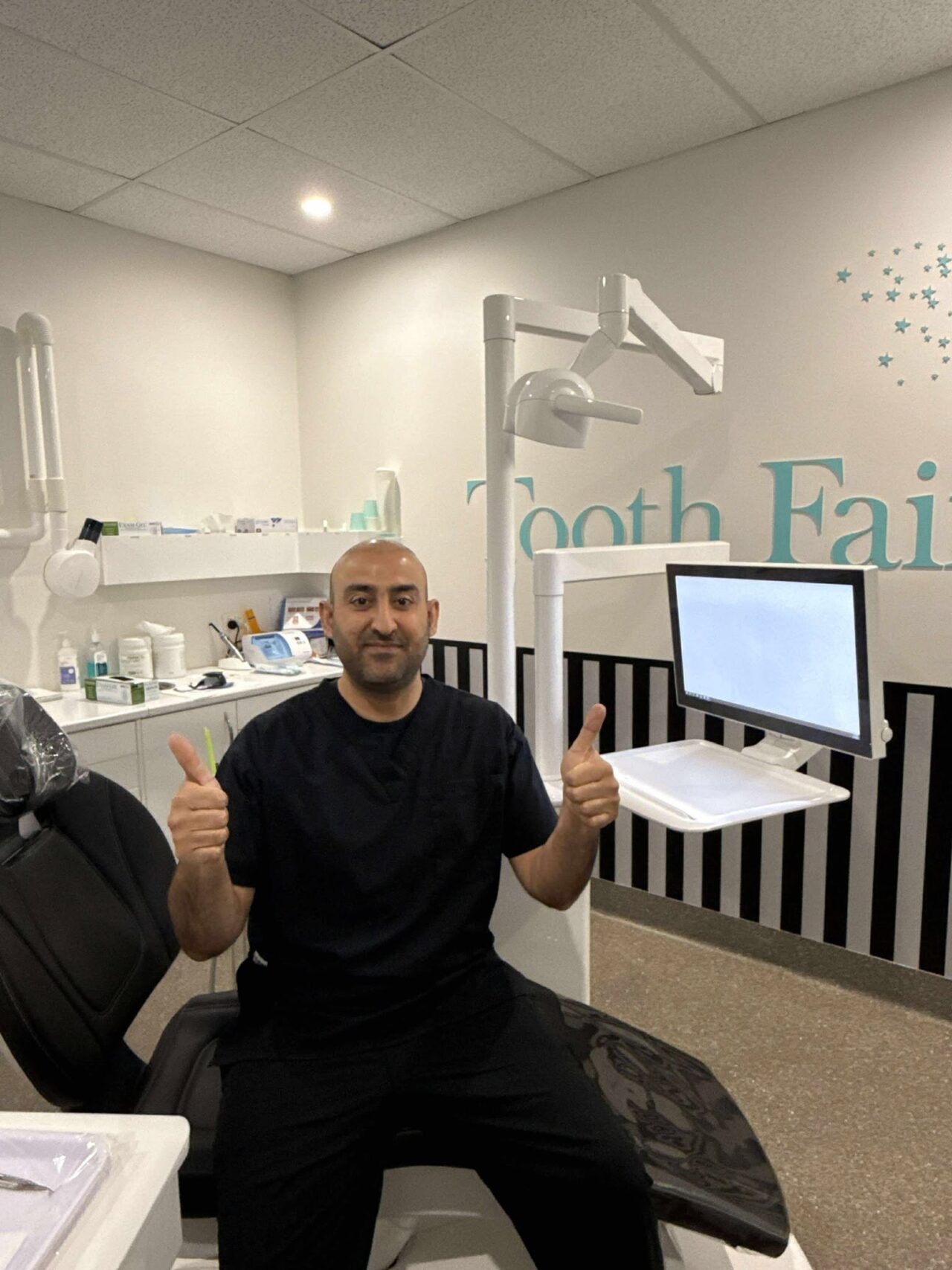
Visiting the dentist can make anyone feel a little nervous, whether you’re a child or an adult. There are new sights, sounds, and equipment to get used to, and for those with autism, phobias, or behavioural challenges, it can feel even more overwhelming.
At Tooth Fairy & Co., we understand these feelings and are here to make the experience as comfortable as possible for every age. Our friendly team knows how to create a calm, positive environment for kids and grown-ups alike. Children can enjoy our magical Fairy Forest, complete with music, costumes, and a playful atmosphere, while we provide gentle care and reassurance for everyone who walks through our doors.
For anxious patients, Dr Aidan Roze offers something truly special – a state-of-the-art massage chair, one of only a few in Australia, designed to help you relax before and during your treatment.

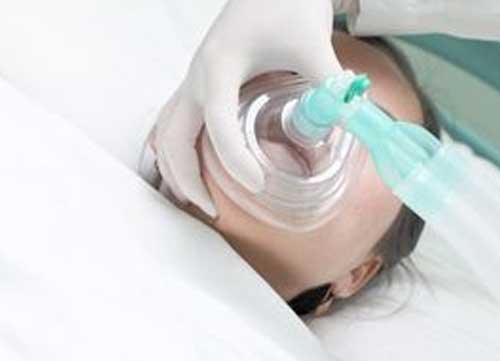
Inhaled Sedation
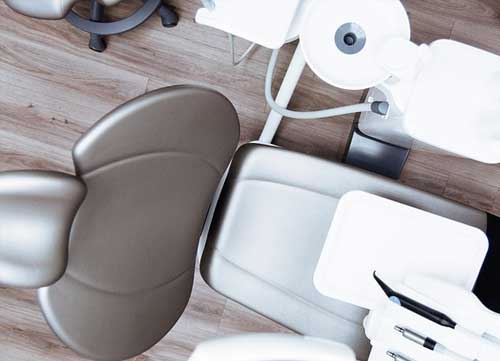
Oral Sedation
Orthodontics

Teeth Straightening

Clear Correct
Cosmetic Dentistry
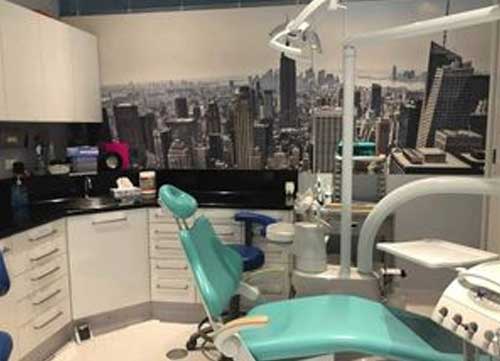
Teeth Whitening
Teeth Whitening – New Advanced Zoom Whitening
We offer an in-chair, hour long whitening session using the latest laser technology by Philips Zoom Advanced Whitening. Or alternatively, you can whiten your teeth at home with our custom made trays which are comfortable to wear and require just 30 minutes of wear per night over approx one week with the application of a 15% hydrogen peroxide gel.
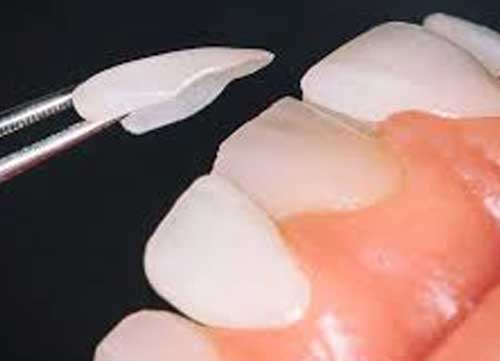
Porcelain Veneers
These are thin ‘shells’ of porcelain which are custom made for you, and are natural-looking, tooth-coloured and bonded to the front of your teeth to improve the look of your smile.
Emergency Dentistry
If you require urgent dental treatment, at Tooth Fairy & Co we allow for emergencies throughout our days to accommodate patients. We recommend that you contact us as soon as possible if you are experiencing any of the following conditions, so we can help you right away:
- Toothache
- Experienced Dental Trauma
- Have Lost or Cracked a Filling
We’ll take care of you as soon as possible.



